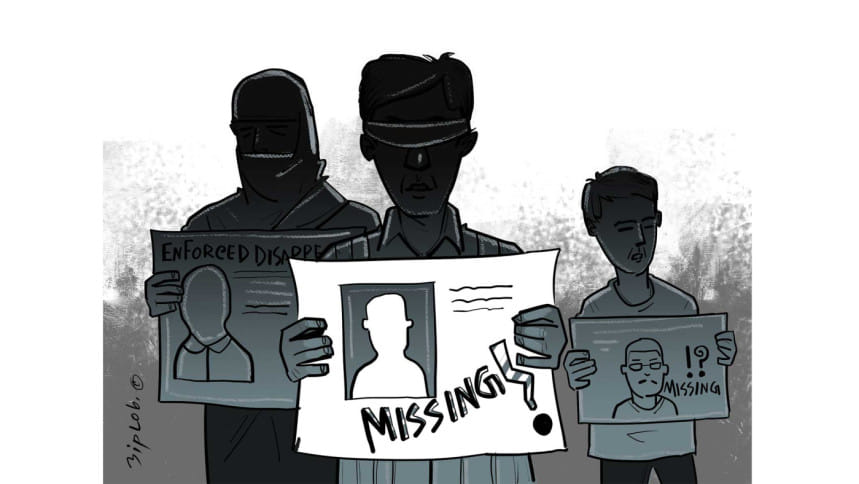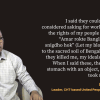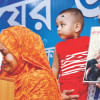Enforced disappearances: UN group records 5 more cases

Five new incidents of enforced disappearance in Bangladesh were reported to the UN Working Group on Enforced Disappearances in the last one year.
This takes the number of cases being investigated by the UN body to 81.
Two of the five cases came to the fore within the reporting year of May 2021-2022, while the other three were reported earlier.
The UN group wrote about the five cases to the government but is yet to receive a response.
Details of these cases are unknown as the group discloses the names only to the government agency it is communicating with.
According to the Hong Kong-based Asian Human Rights Commission (AHRC), there were 19 new reported cases of enforced disappearance within this reporting period, and four of the victims still remain missing.
AHRC keeps an account of enforced disappearances reported by the media in Bangladesh.
Of the five new cases taken up by the UN Working Group, two are considered "time-sensitive" or "urgent procedure" cases, where a person is being detained arbitrarily, and the situation warrants urgent action by the government.
This means the UN had proof that two people were being held forcibly and arbitrarily when the communication was sent to the government.
Although the cases remain unsolved, it is not clear whether the two were released or still remain forcibly disappeared.
A discussion on all the cases will begin at the 128th UN Working Group session tomorrow. It will continue till September 28.
The UN Working Group annual report states that it sent four letters to Bangladesh on various grounds.
One was an urgent appeal to ensure that an unidentified detained person's rights, life and liberty be maintained, and that they be allowed fair proceedings before an independent and impartial tribunal.
Another was a prompt intervention letter addressing allegations of harassment of and threats to human rights defenders and relatives of the disappeared persons in Bangladesh.
The group also sent a "joint allegation letter" written with other special procedure mandate holders, and a general allegation letter relating to obstacles to the implementation of the Declaration on the Protection of All Persons from Enforced Disappearance.
According to the documents made public, some of the letters sent by the Working Group include one expressing concerns over the allegations that police were harassing the families of the victims of enforced disappearance, while one sought information about the judicial harassment of the NGO Odhikar.
The documents show that the government had responded to the letter, denying police harassment wholly.
"The Working Group urges the authorities to redouble efforts to provide additional information, including replying to its related general allegation transmitted after its 125th session, with a view to clarifying all outstanding cases, and to launch independent and impartial investigations into the conduct of the Rapid Action Battalion, particularly as it concerns allegations of enforced disappearances perpetrated by its agents," said the report.
"The Working Group further emphasises that the Government of Bangladesh must ensure that relatives of disappeared persons and human rights defenders and civil society organizations working on their behalf are protected from any threat, intimidation or reprisals.
"In this respect, the Working Group is particularly concerned that the Government has decided not to renew the registration of Odhikar, a prominent human rights organisation, which documents cases of human rights violations, including enforced disappearances," stated the annual report.
It reminded that all persons involved in the investigation, including the complainant, counsel, witnesses and those conducting the investigation, must be protected against ill-treatment, intimidation or reprisal.
The group reiterated its interest in undertaking a visit to Bangladesh and said that it had sent several communications in this regard since 2013.
Government representatives from Bangladesh attended the 126th session of the Working Group held last February, said the report.
The annual report will be presented to the Human Rights council on September 20.

 For all latest news, follow The Daily Star's Google News channel.
For all latest news, follow The Daily Star's Google News channel. 








Comments